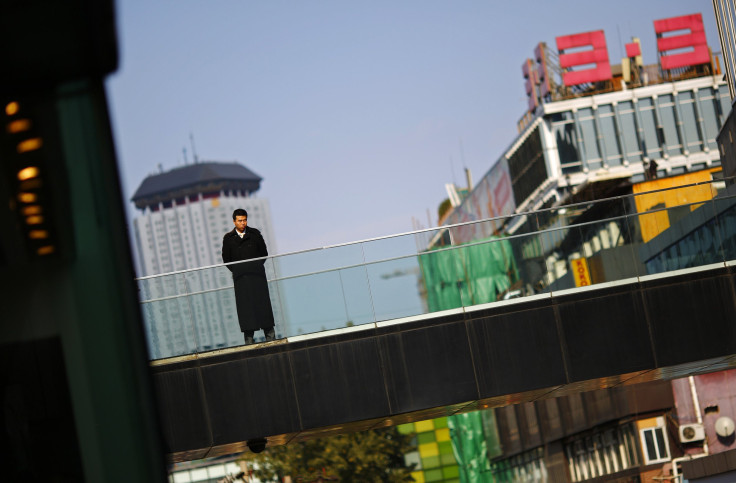US Embassy In Beijing Warns Of 'Possible Threats To Westerners' Over Christmas, China Issues 'Yellow Alert' For Security

SHANGHAI -- The U.S. embassy in Beijing issued a warning Thursday of “possible threats against Westerners” in the city’s Sanlitun embassy district, “on or around Christmas Day.” The Beijing police also issued a “yellow alert for security,” according to Chinese media, with security forces deployed visibly in public areas in Sanlitun.
A message posted on the embassy’s website said the warning was based on information received, and urged U.S. citizens and government personnel to exercise heightened vigilance. The message gave no further information about the possible threat. Embassy press officials could not be reached for comment at the time of going to press, and a security official at the embassy told International Business Times he was not authorized to make public statements.
The UK embassy in China later issued a similar warning, while the French embassy referred to the American warning on its website.
Beijing police also issued a “yellow alert for shopping malls and supermarkets to safeguard security and social order during the Christmas period," according to the official Global Times newspaper. Few details were given, but state media posted pictures of heavily armed security forces and an armored van at a shopping plaza in the Sanlitun area.
Observers said there have been occasional warnings of possible terror threats to Western nationals or diplomatic facilities in China in the past, but the latest warning was unusually specific. The Sanlitun area, to the northeast of central Beijing, is home to many embassies, diplomats and international organizations. The area has many bars and restaurants, and its upscale shopping plaza, which houses many major international brands, is popular with foreigners and local shoppers alike.
In August, a 25-year-old Chinese man armed with a sword attacked and killed a Chinese woman, and injured a French man woman in the shopping district, Chinese media reported, though the motive was not established.
China has experienced a number of terror attacks in recent years, including an attack at a railway station in the southwestern city of Kunming last year, which left 31 people dead, and an explosion in Beijing’s Tiananmen Square last year, caused by a vehicle apparently driven with intent to cause harm, killing two tourists. The government blamed the attacks on Islamic extremists from the mainly Muslim northwestern region of Xinjiang, where Beijing is currently in the midst of a tough anti-terror drive. Earlier this year China said it had cracked some 180 extremist gangs in the region.
China’s leadership also issued a notice Wednesday saying that “campaigns shall be waged to crack down on violent and terroristic crimes and precautions taken to prevent terrorist attacks” during the nation's holiday season -- from New Year’s Eve next week to the Chinese lunar new year in February. It also called for greater inspections of hazardous facilities, in the aftermath of last weekend’s deadly mudslide at a waste dump in the southern city of Shenzhen, which killed at least four people, with more than 70 still missing.
China has already stepped up security precautions against possible terror attacks in the aftermath of the attacks in Paris last month. Police said at the time that they would increase inspections on people and vehicles entering Beijing. Chinese officials said that the country also faced a threat from militants linked to the Islamic State group -- the organization believed to have been behind the Paris attacks. China has said some Islamic separatists from Xinjiang have travelled to the Middle East to join ISIS and receive training.
However, China and the U.S. have not always seen eye to eye on terror-related issues. The U.S. has criticized a new anti-terrorism law being drafted by China’s legislature -- US businesses have expressed concerns that the law could force them to allow Chinese authorities access to their computer systems in China, while critics have also expressed worries that the law defines terrorism very broadly.
However, China rejected such criticism Wednesday when a foreign ministry spokesman accused the U.S. of groundless accusations and double standards in fighting terrorism. And analysts have said global anxiety about terror threats is likely to make the Chinese leadership feel more justified in taking a tough line on the issue.
© Copyright IBTimes 2024. All rights reserved.






















